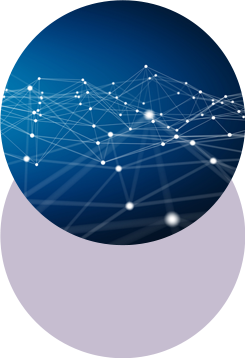Kuraray and DuPont today announced they have signed a definitive agreement for DuPont to sell Glass Laminating Solutions/Vinyls (GLS/Vinyls), a part of DuPont Packaging & Industrial Polymers, to Kuraray for US$543 million, plus the value of the inventories. The sale is expected to close during the first half of 2014 pending customary regulatory approvals.
GLS/Vinyls is a leading supplier of polyvinyl butyral and ionomer sheets for safety glass, and vinyl acetate monomer and polyvinyl alcohol (PVA) products used in a variety of architectural, automotive and industrial applications. GLS/Vinyls delivered full-year 2012 net sales of more than US$500 million. It has about 600 employees with six manufacturing sites in the U.S., Europe and Asia that serve more than 350 customers worldwide.
Keiji Murakami, president of Kuraray’s Vinyl Acetate Company said, “Kuraray was one of the first to successfully industrialize and globally market PVA. As a pioneer of Vinyl Acetate related business, Kuraray has a global presence in the business area of PVA resin, PVB resin and film, PVA film that is used for LCD and detergent unit packing, EVOH (ethylene vinyl alcohol) resin (trademarked as EVAL) used for food packaging and gasoline tanks, and PVA fiber (vinylon) that is used for a substitute of asbestos and a reinforcing material of cement.
“We will benefit from DuPont’s talented global GLS/Vinyls team and their technology, R&D, manufacturing and sales network that has supported it over the years. I am convinced these areas of expertise will allow us to continue to expand our Vinyl Acetate business going forward,” said Murakami.
“GLS/Vinyls will have a good home with Kuraray. That company’s focus on PVA as a central part of its core Vinyl Acetate business, its strong global market position and its capacity to invest in GLS/Vinyls all make this a good fit,” said William J. Harvey, president, DuPont Packaging & Industrial Polymers.
Kuraray was established in 1926. In 1950, the company achieved a corporate milestone as the first in the world to bring polyvinyl alcohol synthetic fiber to market. In subsequent years, Kuraray used its proprietary technology in the area of polymer chemistry and synthetic chemistry to develop resins, chemicals, fibers and textiles and others. Kuraray has overseas subsidiaries in 19 countries and regions outside Japan, as a global specialty chemical company. For more information, visit the company’s website at www.kuraray.co.jp/en
DuPont has been bringing world-class science and engineering to the global marketplace in the form of innovative products, materials, and services since 1802. The company believes that by collaborating with customers, governments, NGOs, and thought leaders we can help find solutions to such global challenges as providing enough healthy food for people everywhere, decreasing dependence on fossil fuels, and protecting life and the environment. For additional information about DuPont and its commitment to inclusive innovation, please visit www.dupont.com.
Forward-Looking Statements: This news release contains forward-looking statements which may be identified by their use of words like “plans,” “expects,” “will,” “believes,” “intends,” “estimates,” “anticipates” or other words of similar meaning. All statements that address expectations or projections about the future, including statements about the company’s growth strategy, product development, regulatory approval, market position, anticipated benefits of acquisitions, outcome of contingencies, such as litigation and environmental matters, expenditures and financial results, are forward-looking statements. Forward-looking statements are not guarantees of future performance and are based on certain assumptions and expectations of future events which may not be realized. Forward-looking statements also involve risks and uncertainties, many of which are beyond the company’s control. Some of the important factors that could cause the company’s actual results to differ materially from those projected in any such forward-looking statements are: fluctuations in energy and raw material prices; failure to develop and market new products and optimally manage product life cycles; significant litigation and environmental matters; failure to appropriately manage process safety and product stewardship issues; changes in laws and regulations or political conditions; global economic and capital markets conditions, such as inflation, interest and currency exchange rates; business or supply disruptions; security threats, such as acts of sabotage, terrorism or war, weather events and natural disasters; ability to protect and enforce the company’s intellectual property rights; and successful integration of acquired businesses and separation of underperforming or non-strategic assets or businesses. The company undertakes no duty to update any forward-looking statements as a result of future developments or new information.

